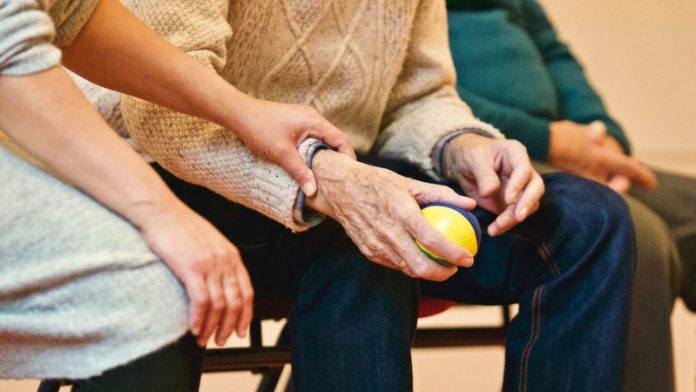
Relatively young COVID-19 patients developed Parkinson’s disease within weeks of contracting the COVID-19 virus.
This has led scientists to wonder if there could be a link between the two conditions.
In a new study from the University of Twente, researchers found the SARS-CoV-2 N-protein interacts with a neuronal protein called α-synuclein and speeds the formation of amyloid fibrils, pathological protein bundles in Parkinson’s disease.
In addition to respiratory symptoms, SARS-CoV-2 can cause neurological problems, such as loss of smell, headaches and “brain fog.”
In Parkinson’s disease, a protein called α-synuclein forms abnormal amyloid fibrils, leading to the death of dopamine-producing neurons in the brain. Interestingly, loss of smell is a common premotor symptom in Parkinson’s disease.
In the study, the team tested whether protein components of SARS-CoV-2 could trigger the aggregation of α-synuclein into amyloid.
They focused on the spike (S-) protein that helps SARS-CoV-2 enter cells, and the nucleocapsid (N-) protein that encapsulates the RNA genome inside the virus.
The researchers used a fluorescent probe that binds amyloid fibrils to show that, in the absence of the coronavirus proteins, α-synuclein required more than 240 hours to aggregate into fibrils.
Adding the S-protein had no effect, but the N-protein decreased the aggregation time to less than 24 hours.
In other experiments, the team showed that the N- and α-synuclein proteins interact directly.
Next, the researchers injected N-protein and fluorescently labeled α-synuclein into a cell model of Parkinson’s disease.
Compared to control cells with only α-synuclein injected, about twice as many cells died upon injection of both proteins.
It’s unknown whether these interactions also occur within neurons of the human brain, but if so, they could help explain the possible link between COVID-19 infection and Parkinson’s disease.
If you care about COVID-19, please read studies about why some people have severe COVID-19, while others have no symptoms, and findings of people that are 3 times more likely to get COVID-19 infection.
For more information about health, please see recent studies about vitamins that may protect you from Parkinson’s disease, and results showing this supplement may help boost COVID-19 recovery.
The study is published in ACS Chemical Neuroscience. One author of the study is Christian Blum.
Copyright © 2021 Knowridge Science Report. All rights reserved.



